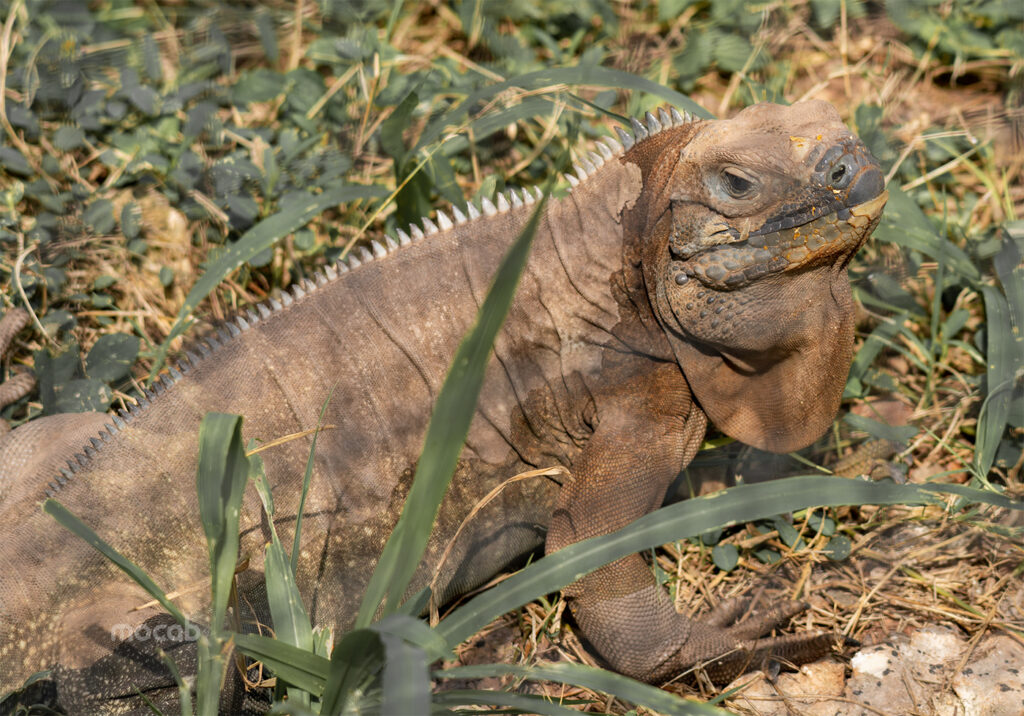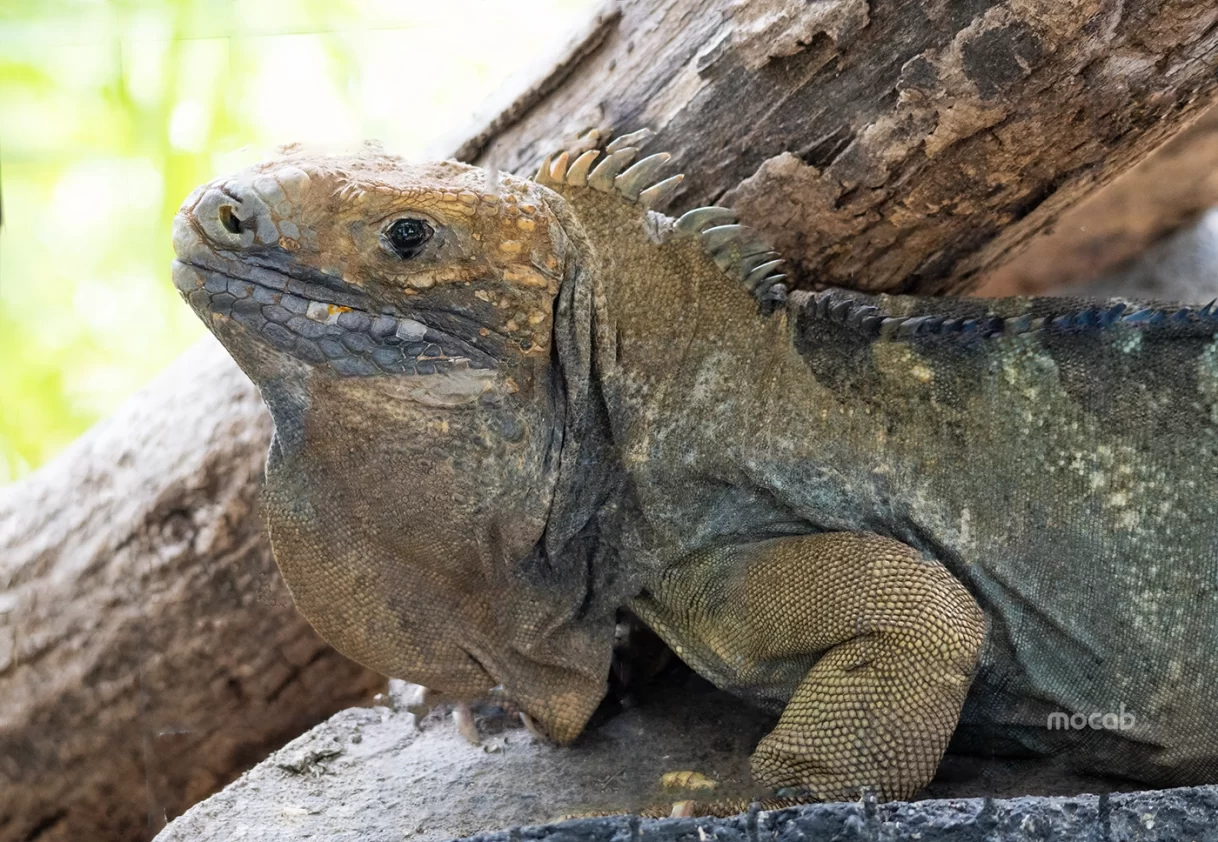Iguanas are a family of large lizard native to south and central America. Along with their size, they are characterized by a long and strong tail, spiny back, dewlap, and being herbivorous. The Jamaican iguana is a species of iguana endemic to Jamaica. Adults tend to be tinted by the red soil of their habitat as they dig and forage on the ground. However, their actual colour is a mix of turquoise and black as revealed when their skin is shed as it regularly does. Consequent to being an island, Jamaica is not regularly exposed to foreign plants and animals. This isolation over time means that the development of local creatures takes evolutionary direction that is uniquely Jamaican. The Jamaican iguana holds the title of being the largest native land-dwelling animal of the island of Jamaica. This remained the case for hundreds of years until they were put under severe and near fatal pressure of rapid change in their environment introduced by people. Introduced species such as mongoose and habitat loose were chief treats to the iguanas. The island population was conclusively considered extinct in the 1940’s. They were then spoken about in the past tense, a memory for those fortunate to have saw them and only imagined by subsequent generations of Jamaicans.

Family: Iguanidae
Genus: Cyclura
Species: Cyclura Collie
Luckily and amazingly, the assessment and conclusion of their final demise was revealed to not be accurate after all when a local named Edwin Duffus came across a large lizard in the Hellshire hills while he was out hunting for feral pigs. To the amazement of everyone, it was then later identified by the Hope Zoo as being a long thought extinct Jamaican Rock Iguana. The story of the long-gone reptilian icon of the Jamaica was not yet drawn to a close. We were afforded the rare opportunity to bring back a once thought extinct animal species. Since then, the opportunity was not squandered. Various conservation groups mobilized their effort to make full use of the opportunity to secure the future of this species, chief among this is the Fort Worth Zoo in collaboration with the Hope Zoo. They have been running a headstarter programme along with a myriad of other conservation efforts to bolster and secure the iguana’s population.


It’s onerous to seek out knowledgeable people on this subject, however you sound like you realize what you’re speaking about! Thanks